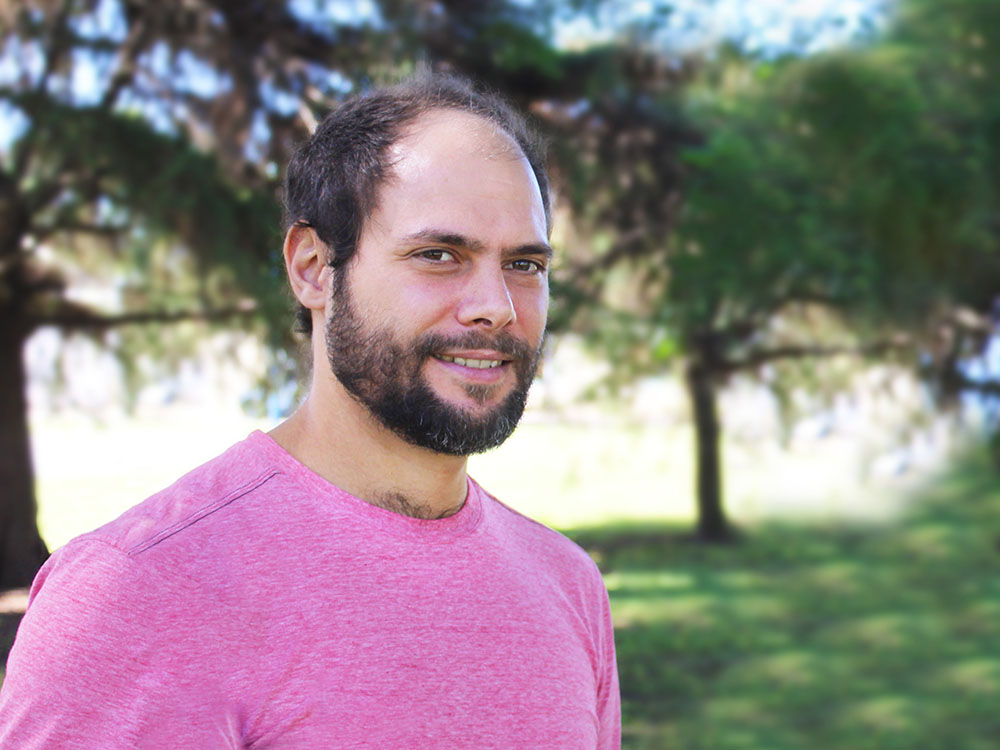IBM's Masters of Invention
Jeronimo Irazabal: Argentina Is Home, But the World’s His Lab
By Tim Race
Sometimes a patentable idea is discovered by accident. Literally.
Six years ago, while a doctoral student in computer science at the National University of La Plata, in Argentina, Jeronimo Irazabal was commuting to campus on his bicycle. Suddenly, a driver in a parked car swung the door open, causing Irazabal to crash.
Irazabal, an accomplished cyclist and runner, wasn’t seriously injured. But it was a common enough sort of biking accident that he knew it demanded a solution.
Fast forward to last May, when Irazabal, now a software engineer on IBM’s research team in Argentina, received his first U.S. patent. It was for a communication system that would let bicycles and cars automatically alert one another when they are in close proximity.
 Jeronimo Irazabal, IBM Argentina's first Master Inventor.
Jeronimo Irazabal, IBM Argentina's first Master Inventor.
“Having the chance to invent and being recognized for it—it’s one of the main reasons I enjoy working and foresee a long career path as an IBMer,” says Irazabal, 35, who has nearly three dozen other patent applications pending. He was recently name IBM Argentina’s first Master Inventor.
A “Global Lab” Approach
The bicycle accident-avoidance patent was a project of passion for Irazabal, whose current specialty is blockchain technology. Working from a home office in Roque Perez, a two-hour drive north of Buenos Aires, he is a member of the Invention Development Team of IBM Blockchain. The global group, whose chair is Sean Dunne, in Ireland, advises IBMers around the world and evaluates their blockchain ideas to determine which ones might be patentable.
Irazabal is also a member of SilverGate, a network of 16 IBM researchers across Argentina who support IBM labs around the world. When possible, SilverGate members and colleagues from IBM Argentina gather in person to bat around ideas in what Irazabal refers to as a “patent mate”—a kind of inventors’ kaffeeklatsch at which the drink of choice is the heavily caffeinated mate beverage popular in Argentina.
Irazabal’s work and research network typifies the “global lab” approach of IBM research. Several of his pending patent applications have been co-authored with IBMers from different countries, with different areas of expertise.
Having the chance to invent and being recognized for it—it’s one of the main reasons I enjoy working and foresee a long career path as an IBMer.
“Invention is part of IBM culture,’’ he says. “It connects IBMers around the world in a very unique way. People who may not even know each other, group together and start thinking collaboratively to find the best solution for a problem.’’
Freedom to Innovate and Learn
Irazabal hopes his research in blockchain and cryptographic proofs will eventually provide the basis for him to complete his doctoral degree. “I want to write my PhD thesis once I’m convinced my contributions are novel and can enable practical applications,’’ he says.
The ability to work from home is important to Irazabal. In fact, it was one of the reasons he chose to join IBM in March 2015, leaving his positions on the faculty of the National University and as a fellow at Argentina’s National Council of Scientific and Technical Research. At the time, he and his wife, Yanina, had just had a baby girl, Julieta, who is now 5. They now have a second daughter, an 11-month-old named Emilia. Irazabal appreciates the parenting flexibility that IBM and SilverGate have made possible.
Inventing is not Irazabal’s full-time job, of course. He has plenty of work to do supporting IBM clients in areas of digital rights management and blockchain that include collaboration protocols, security and transparency, and finding ways to expand use of the platform.
And yet, at IBM, “you can make enough time to address a technical problem with an inventor’s perspective,’’ Irazabal says. “I think this is quite special in IBM. You have complete freedom to innovate and learn.”